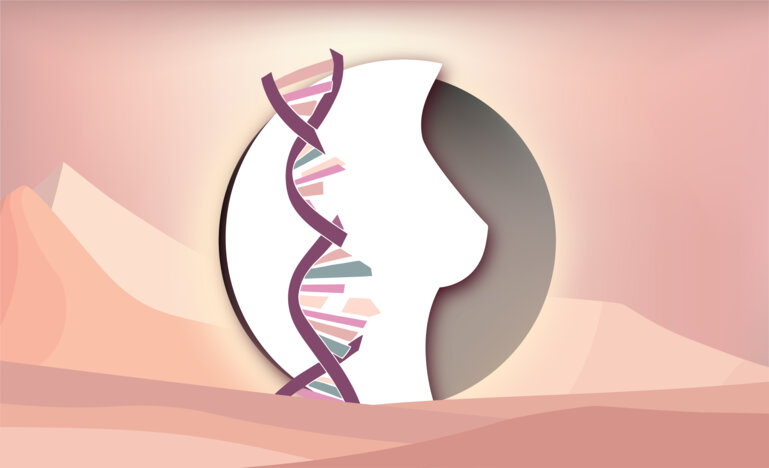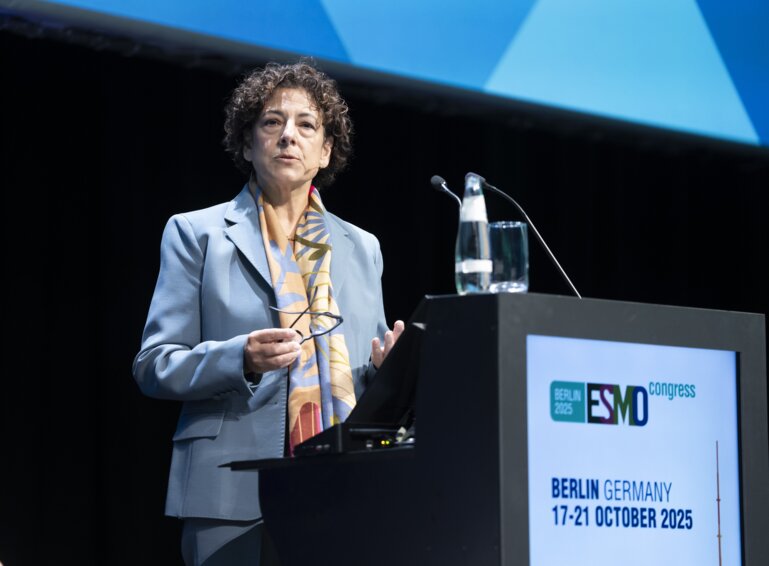ESR1 variants show to be predictive of response to fulvestrant and novel mutations have been identified
An analysis investigating the genomic associations of response and resistance to the selective estrogen degrader (SERD) fulvestrant in advanced breast cancer reveals that activating estrogen receptor variants (ESR1) have a predictive role for acquired resistance and unveils novel combinations of mutations in the estrogen receptor (ER) ligand binding domain (Cancer Discov. 2023 Nov 20).
Data were collected from 79 patients with ER positive advanced breast cancer enrolled in the Cohort A of the plasmaMATCH trial exploring the activity of fulvestrant in tumours with activating ESR1 mutations in circulating tumour DNA (ctDNA). An extended dose of fulvestrant (500mg) was given to all patients every two weeks, twice as frequent as standard dosing, to increase exposure to the SERD and then target ESR1-mutant cancers.
“The study not only highlights the evolving nature of tumor genomes during fulvestrant therapy, but also identifies a potential treatment strategy involving alternative SERDs to overcome resistance caused by novel mutations,” says Dr Carmen Criscitiello, European Institute of Oncology, Milan, Italy.
Prior studies in advanced breast cancer have shown that ESR1 mutations are acquired through prior aromatase inhibitor therapy, with circulating tumour DNA analysis demonstrating that they occur in 15-40% of treated patients (Sci Transl Med. 2015 Nov 11;7(313):313ra182). “The findings suggest a possibility of rechallenging patients with fulvestrant after a treatment break, especially given the expanding array of available biologic agents”, continues Criscitiello. “The study underscores the challenge posed by substantial heterogeneity in ER positive breast cancers after endocrine therapy progression, with 25% of patients acquiring targetable driver mutations. Notably, the acquisition of ESR1 mutations, likely driven by clonal selection, emphasises the importance of liquid biopsy testing to tailor treatment to evolving genomics.”
Fulvestrant represents an important option of treatment for women with advanced breast cancer, and it is approved in both the first and second line, in monotherapy or combined with other targeted therapies. Resistance to this SERD is currently poorly understood.
The genomic analysis demonstrated that baseline ESR1 variants are predictive of response to fulvestrant, with frequent acquisition of potentially targetable mutations. Novel mutations at F404 in estrogen receptor were identified and occurred only in patients treated with fulvestrant with preexisting activating ESR1 mutations in their cancer. F404 mutations are acquired in cis with a pre-existing activating ESR1 mutation, with the resulting compound mutation resulting in profound resistance to fulvestrant, but with retained sensitivity to a range of novel SERDs. “The authors' identification of a novel ESR1 mutation at ERα F404 adds a crucial layer of understanding, offering insights into specific resistance mechanisms to fulvestrant. This knowledge paves the way for potential therapeutic interventions using alternative SERDs, demonstrating the clinical implications of their findings in overcoming resistance in ESR1 mutant breast cancer. Overall, the study expands our knowledge of the genomic landscape during fulvestrant therapy, emphasising the need for tailored treatment strategies in the face of evolving tumor genomes.”






